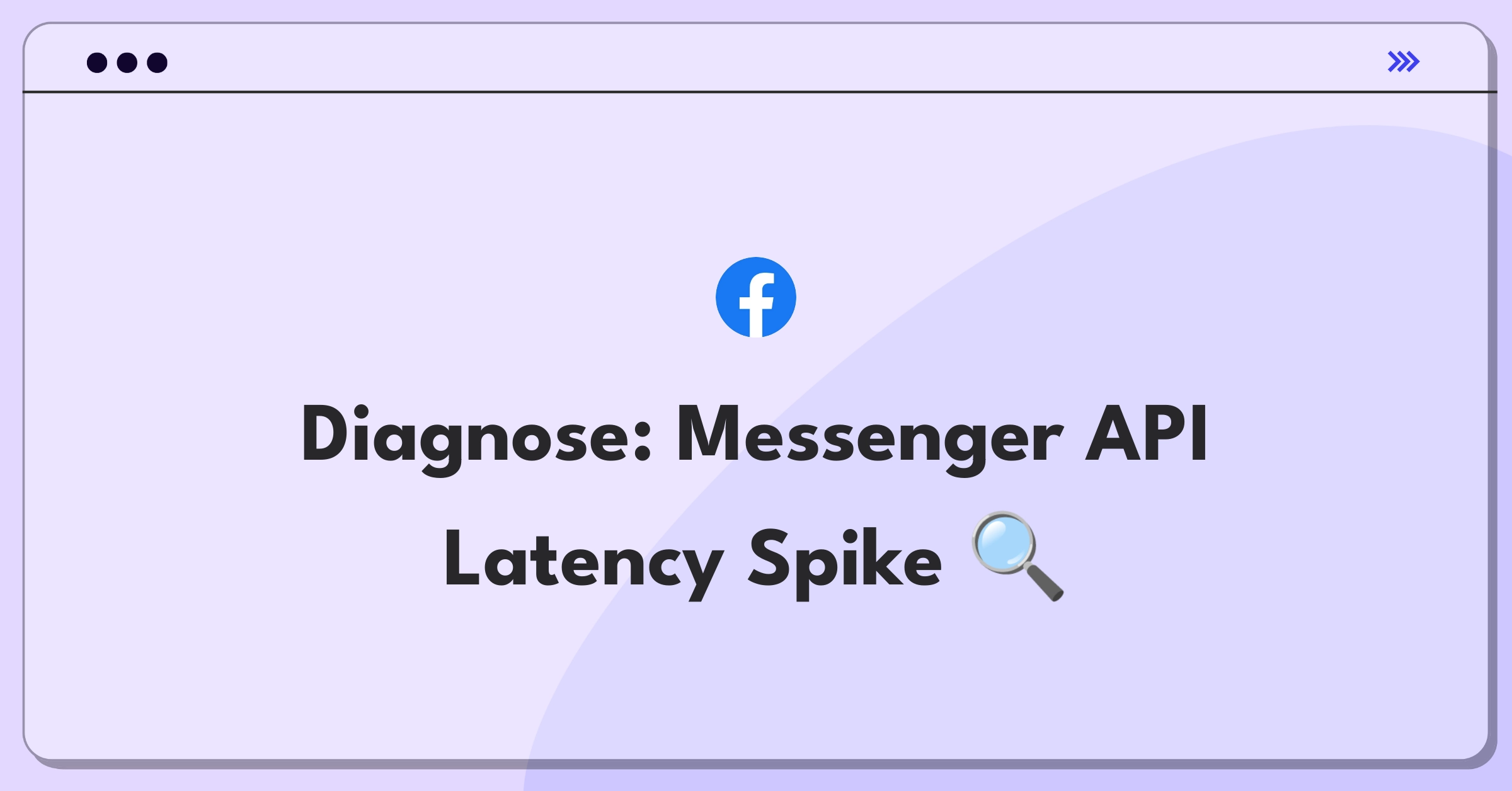Introduction
The sudden increase in Messenger API response time to 3 seconds is a critical issue that demands immediate attention. This performance degradation can significantly impact user experience, potentially leading to decreased engagement and user satisfaction. I'll approach this problem systematically, focusing on identifying the root cause, validating hypotheses, and developing both short-term fixes and long-term solutions.
Framework overview
This analysis follows a structured approach covering issue identification, hypothesis generation, validation, and solution development.
Step 1
Clarifying Questions (3 minutes)
Why it matters: Pinpointing the timeframe helps narrow down potential causes. Expected answer: Within the last 24-48 hours. Impact on approach: A sudden change suggests a recent deployment or external factor.
Why it matters: Helps determine if it's a global issue or limited to certain user segments. Expected answer: It's affecting most users, but with some variation across regions. Impact on approach: Global impact suggests a core infrastructure or code issue.
Why it matters: Identifies whether it's a systemic issue or specific to certain functionalities. Expected answer: The delay is most pronounced in message sending and retrieval endpoints. Impact on approach: Focuses our investigation on specific API components and related infrastructure.
Why it matters: Recent changes are often the culprit in sudden performance issues. Expected answer: A minor update was pushed to production two days ago. Impact on approach: Directs attention to recent code changes and their potential impact.
Why it matters: Ensures we're not dealing with a measurement anomaly rather than an actual performance issue. Expected answer: No changes to measurement methods or definitions. Impact on approach: Confirms the issue is with actual performance, not data collection.
Subscribe to access the full answer
Monthly Plan
The perfect plan for PMs who are in the final leg of their interview preparation
$66.00 /month
- Access to 8,000+ PM Questions
- 10 AI resume reviews credits
- Access to company guides
- Basic email support
- Access to community Q&A
Yearly Plan
The ultimate plan for aspiring PMs, SPMs and those preparing for big-tech
- Everything in monthly plan
- Priority queue for AI resume review
- Monthly/Weekly newsletters
- Access to premium features
- Priority response to requested question


.png)